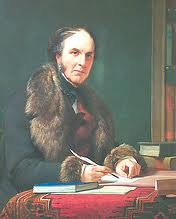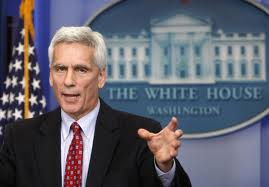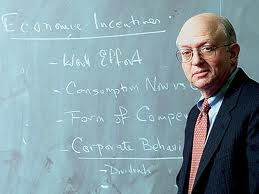
Image: John Maynard Keynes
“Economics is haunted by more fallacies than any other study known to man.”― Henry Hazlitt
Over millennia, numerous enterprises have sought the status of science. Few have succeeded because they have failed to discover anything that stood up to scrutiny as knowledge. No body of beliefs, no matter how widely accepted or how extensive in scope, can ever be scientific.
 In the Ptolemaic system of astronomy, the epicycle is a geometric model of the solar system and planetary motion. It was first proposed by Apollonius of Perga at the end of the 3rd century BCE and its development continued until Kepler came up with a better model in the 17th century, and the geocentric model of the solar system was replaced by Copernican heliocentrism. In spite of some very good approximations to the problems of planetary motion, the system of epicycles could never get anything right.
In the Ptolemaic system of astronomy, the epicycle is a geometric model of the solar system and planetary motion. It was first proposed by Apollonius of Perga at the end of the 3rd century BCE and its development continued until Kepler came up with a better model in the 17th century, and the geocentric model of the solar system was replaced by Copernican heliocentrism. In spite of some very good approximations to the problems of planetary motion, the system of epicycles could never get anything right.
Phrenology was originated by Franz Joseph Gall [right] in the late 1700s. After examining the heads of a number of young pickpockets, Gall found that many of them had bumps on their skulls just above their ears and suggested that the bumps, indentations, and shape of the skull could be linked to different aspects of a person’s personality, character, and abilities. Gall measured the skulls of people in prisons, hospitals, and asylums and developed a system of 27 different “faculties” that he believedcould be directly diagnosed by assessing specific parts of the head, and he chose to ignore any contradictory evidence. After Gall’s death in 1828, several of his followers continued to develop phrenology. Despite some brief popularity, it was eventually viewed as a pseudoscience much like astrology, numerology, and palmistry. All of these, too, could never get anything right.
 Sigmund Freud was an Austrian neurologist who is known as the father of psychoanalysis which is a clinical method for treating psychopathology by having a patient talk to a psychoanalyst. Results on the mental health of patients were scanty at best. Some contend that Freud set back the study of psychology and psychiatry “by something like fifty years or more”, and that “Freud’s method is not capable of yielding objective data about mental processes”. Others consider psychoanalysis to be perhaps the most complex and successful pseudoscience in history. Karl Popper, who argued that all proper scientific theories must be potentially falsifiable, claimed that no experiment could ever disprove Freud’s psychoanalytic theories and thus were totally unscientific. Now Freud’s work has little relevance in psychiatry. It could never cure anyone. But it was not Freud who created a pseudoscience, it was the people who uncritically adopted his views.
Sigmund Freud was an Austrian neurologist who is known as the father of psychoanalysis which is a clinical method for treating psychopathology by having a patient talk to a psychoanalyst. Results on the mental health of patients were scanty at best. Some contend that Freud set back the study of psychology and psychiatry “by something like fifty years or more”, and that “Freud’s method is not capable of yielding objective data about mental processes”. Others consider psychoanalysis to be perhaps the most complex and successful pseudoscience in history. Karl Popper, who argued that all proper scientific theories must be potentially falsifiable, claimed that no experiment could ever disprove Freud’s psychoanalytic theories and thus were totally unscientific. Now Freud’s work has little relevance in psychiatry. It could never cure anyone. But it was not Freud who created a pseudoscience, it was the people who uncritically adopted his views.
Today the great fraudulent science is economics, but I don’t intend to beat that carcass. It has been shown not to be a science by numerous astute people. Even some renowned economists have been convinced of it. Paul Samuelson has said, “Economics has never been a science—and it is even less now than a few years ago.” Even  Nassau William Seniorknew it: “The confounding Political Economy with the Sciences and Arts to which it is subservient, has been one of the principal obstacles to its improvement.”
Nassau William Seniorknew it: “The confounding Political Economy with the Sciences and Arts to which it is subservient, has been one of the principal obstacles to its improvement.”
Yet many working economists continue to claim that it is or at least that it is more of a science than its siblings in the social enterprises of study. Perhaps these people feel that their work lacks dignity if it is not scientific, being unable to say exactly what it is if it is not science. So let’s look at some things that economists regularly do to see if what they are doing can be defined.
 Jared Bernstein [right], with a Ph.D. in Social Welfare from Columbia University, is not technically an economist but he has held many positions that an economist would usually hold. He was chief economist and economic adviser to Vice President Joe Biden and a member of President Obama’s economic team. Prior to joining the Obama administration, he was a senior economist and the director of the Living Standards Program at the Economic Policy Institute. Between 1995 and 1996, he held the post of deputy chief economist at the U.S. Department of Labor. His pieces are frequently posted on Economist’s View where I found a piece containing the following section:
Jared Bernstein [right], with a Ph.D. in Social Welfare from Columbia University, is not technically an economist but he has held many positions that an economist would usually hold. He was chief economist and economic adviser to Vice President Joe Biden and a member of President Obama’s economic team. Prior to joining the Obama administration, he was a senior economist and the director of the Living Standards Program at the Economic Policy Institute. Between 1995 and 1996, he held the post of deputy chief economist at the U.S. Department of Labor. His pieces are frequently posted on Economist’s View where I found a piece containing the following section:
the deeper, and more interesting, reason one worries about too-low inflation right now comes out of the work of Ackerlof et al back in the mid-1990s. It has to do with sticky wages, something Keynes recognized as contributing to intractably high UK unemployment back in the early 1920s. Back in the mid-90s, we also faced a period when price growth was slowing, and inflation hawks called for the Fed to set zero as their inflation target. Alan Greenspanapparently took it seriously, and internally debated the idea.
 That inspired Ackerlof et al to think about what might happen in a zero inflation economy, and what they found was that it would engender significant costs in terms of unemployment and growth.
That inspired Ackerlof et al to think about what might happen in a zero inflation economy, and what they found was that it would engender significant costs in terms of unemployment and growth.
The reason that zero inflation creates such large costs to the economy is that firms are reluctant to cut wages. In both good times and bad, some firms and industries do better than others. Wages need to adjust to accommodate these differences in economic fortunes. In times of moderate inflation and productivity growth, relative wages can easily adjust. The unlucky firms can raise the [nominal] wages they pay by less than the average, while the lucky firms can give above-average increases. However, if productivity growth is low (as it has been since the early 1970s in the United States) and there is no inflation, firms that need to cut their relative wages can do so only by cutting the money [i.e., nominal] wages of their employees. Because they do not want to do this, they keep relative wages too high and employment too low.
As long as there’s a little inflation in the system, “less fortunate” firms can give nominal wage increases below the rate of inflation, allowing them to adjust to harder times. With very low inflation, they don’t have the room to pull that off.
When I read this, I recognized that the fuzzy writing, which is always a symptom of bad thinking, lead to entirely the wrong conclusions. First we see that “firms are reluctant to cut wages.” Then we see that firms cut wages by giving “nominal wage increases below the rate of inflation” which, apparently, firms are not at all “reluctant” to do. The conclusion that aches to be drawn is that inflation allows firms to covertly reduce the wages of their employees, and it does that regardless of the firms’ financial conditions, since nothing prohibits any firm from giving raises below the rate of inflation. Bernstein wants the rate of inflation to be higher so employers can engage in this sneaky way of reducing the wages of their employees. Inflation is good for employers but bad for employees.
Bernstein is involved in equation adjusting, a prevalent practice among economists. An equation exists; economists call it a model. The equation, they believe, describes reality albeit in a simplistic way. When economic data is plugged into the equation, if both sides are unequal, one side, or sometimes both sides, must be adjusted to make both sides equal. I don’t know what specific equation Bernstein has in mind, but I know that one side describes, in mathematical terms, the economic conditions firms face, and the other side describes the costs of production. So when the side that describes the economic conditions the firms face declines, something on the other side must be reduced.
For Bernstein, it’s wages. But what has the equation to do with reality? Economists believe that their equations describe reality accurately, but no model ever comes accompanied by a proof that it does. As Keynes pointed out, “Too large a proportion of recent ‘mathematical’ economics are mere concoctions, as imprecise as the initial assumptions they rest on, which allow the author to lose sight of the complexities and interdependencies of the real world in a maze of pretentious and unhelpful symbols.” As others have pointed out, the map is not the territory.
When the model that Bernstein has in mind is combined with what economists call the Paradox of Thrift (the claim that saving benefits consumers but damages the economy and spending, which benefits the economy, damages consumers), it follows that Capitalism can never be made to function in a way that benefits all people.
 Economic models are based on mere beliefs, many of which can never be known to be true. Consider the following claims for instance:
Economic models are based on mere beliefs, many of which can never be known to be true. Consider the following claims for instance:
“Nobody ever saw a dog make a fair and deliberate exchange of one bone for another with another dog. Nobody ever saw one animal by its gestures and natural cries signify to another, this is mine, that yours; I am willing to give this for that.” Adam Smith
“Every individual is continually exerting himself to find out the most advantageous employment for whatever capital he can command.” Adam Smith
“That every person is desirous to obtain, with as little sacrifice as possible, as much as possible of the articles of wealth.” Nassau William Senior
“Everyone wants to live at the expense of the state.” Frederic Bastiat
“People spend more when they feel wealthier, even if they’re not.: Economists call this the “wealth effect,”
“the consumption of the rich is no more than a scaled-up version of the consumption of the poor”
And then there’s this from Dani Rodrik: “Mainstream economists are often seen as ideologues of the market economy. I would concede that most of my economist colleagues tend to view markets as inherently desirable and government intervention as inherently unwelcome. But in reality what we teach our students in the classroom – the advanced students if not the undergraduates –and what we talk about in the seminar room are typically much more about the myriad ways in which markets fail.”
How could anyone know any of these things? Did Adam Smith spend a lot of time observing the behavior of dogs? And even if he did, what would that have taught him about trade? In what sense do public school teachers or nurses continually exert themselves to find out the most advantageous employment for whatever capital s/he can command? How many readers of this piece want to live at the expense of the state? And how many economics teachers have had their teaching observed by Prof. Rodrik? No evidence exists for the truth of any of these examples.
So why do economists make claims like these? Is it because these claims describe how they themselves would behave if given the opportunity? Was Bastiat spectacularly lazy? Was Smith really a greedy man? If those who make such claims wouldn’t have acted in the ways they described, wouldn’t they then know that the claims were false?
These all are unprovable claims about human (or canine) nature. Economics as we know it is nothing but claims about how human beings will act in given circumstances. As such, it is nothing but armchair psychology, and the psychology is based on the psychological attributes of the economists making the claims. Greedy people believe that all people are. Dishonest people believe that all people are. Corrupt people believe that all people are. Evil people believe that all people are. But, you know, they’re wrong! Paul Bloom, a professor of psychology at Yale, says.
When it comes to accepting or changing the status quo . . . [people] tended to “defer to experts or the community.” Economists assume that “everything is subject to market pricing unless proven otherwise. … The problem is not that economists are unreasonable people, it’s that they’re evil people. … They work in a different moral universe.”
 Martin Feldstein tells us how its all supposed to work:
Martin Feldstein tells us how its all supposed to work:
“When the Fed buys long-term government bonds and mortgage-backed securities, private investors are no longer able to buy those long-term assets. Investors who want long-term securities therefore have to buy equities [stocks]. That drives up the price of equities, leading to more consumer spending [wealth effect].”
But it doesn’t work, does it?
Economists have been carrying coal to Newcastle since Adam Smith provided English merchants with a rationalization of what they had always wanted to do—treat their fellow human beings as beasts of burden. Economists continue to perform the same function.
“Capitalism is the astounding belief that the most wickedest of men will do the most wickedest of things for the greatest good of everyone.”—John Maynard Keynes
Economics is not about economy; it is a way or organizing society. Our economists have resuscitated an old social order. We live in a neofeudal world where the elite rentier group lives in manor mansions and everyone else is a serf.
John Kozy is a retired professor of philosophy and logic who writes on social, political, and economic issues. After serving in the U.S. Army during the Korean War, he spent 20 years as a university professor and another 20 years working as a writer. He has published a textbook in formal logic commercially, in academic journals and a small number of commercial magazines, and has written a number of guest editorials for newspapers. His on-line pieces can be found onhttp://www.jkozy.com/ and he can be emailed from that site’s homepage.
http://www.globalresearch.ca/economics-and-armchair-psychology/5335230